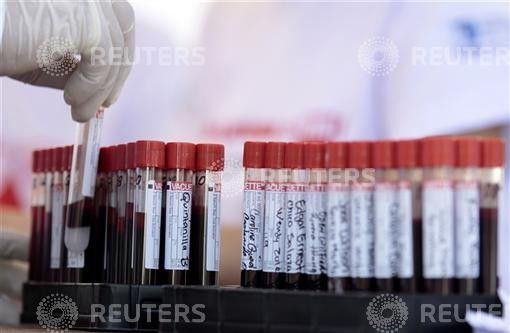Blood Test can Help Diagnose Heart Attack: Researchers

Researchers at the Loyola University Chicago Stritch School of Medicine believe that a possible new blood test could help diagnose heart attacks.
Despite technological advances in the medical field, there is still no guaranteed test that could diagnose heart attacks. In fact, medical practitioners have to depend on a series of tests such as an electrocardiogram and other blood tests. An electrocardiogram can diagnose major heart attacks, but not minor ones. There are other blood tests for various proteins associated with heart attacks. But most of these proteins are not specific to the heart.
Scientists have been on the lookout for a protein biomarker that would be specific to the heart. With the new theory, the Loyola study is the first to note that myosin binding protein-C specifically causes heart attacks. The new findings, published in the Journal of Molecular and Cellular Cardiology, state that a large protein, known as cardiac myosin binding protein-C (cMyBP-C), is released into the blood following a heart attack.
Detecting this protein could serve as a possible biomarker for heart attacks. This is likely to overcome the current lack of specific diagnostic test that detects the presence of myosin binding protein-C. An advantage is that this protein is not only specific to the heart but is also readily detectable in a blood test because of its large molecular size and relatively higher concentration in the blood.
This potentially could become the basis for a new test, used in conjunction with other blood tests, to help diagnose heart attacks, says lead author Sakthivel Sadayappan, from the Loyola University and Chicago Stritch School of Medicine. This is the beginning. A lot of additional studies will be necessary to establish cMyBP-C as a true biomarker for heart attacks.
Researchers explain that only one protein now used in blood tests, called cardiac troponin-I, is specific to the heart. Although current blood tests for screening heart attacks look for causative protein biomarkers of stoke, these proteins can show up in blood tests only after six or eight hours after the stroke has actually occurred.
However, the accuracy of these diagnoses could also be faulty. Elevated levels of such proteins could indicate a problem other than a heart attack, such as a muscle injury. Sadayappan and co-author Suresh Govindan note that between 60 and 70 percent of all patients who complain of chest pain do not have heart attacks.
Researchers evaluated blood samples from heart attack patients. Sadayappan says cMyBP-C is a large assembly protein that stabilizes heart muscle structure and regulates cardiac function. During a heart attack, a coronary artery is blocked, and heart muscle cells begin to die due to lack of blood flow and oxygen. As heart cells die, cMyPB-C breaks into fragments and is released into the blood. Future studies would determine the time course of release, peak concentrations and half life in the circulatory system, they say.
© Copyright IBTimes 2024. All rights reserved.





















